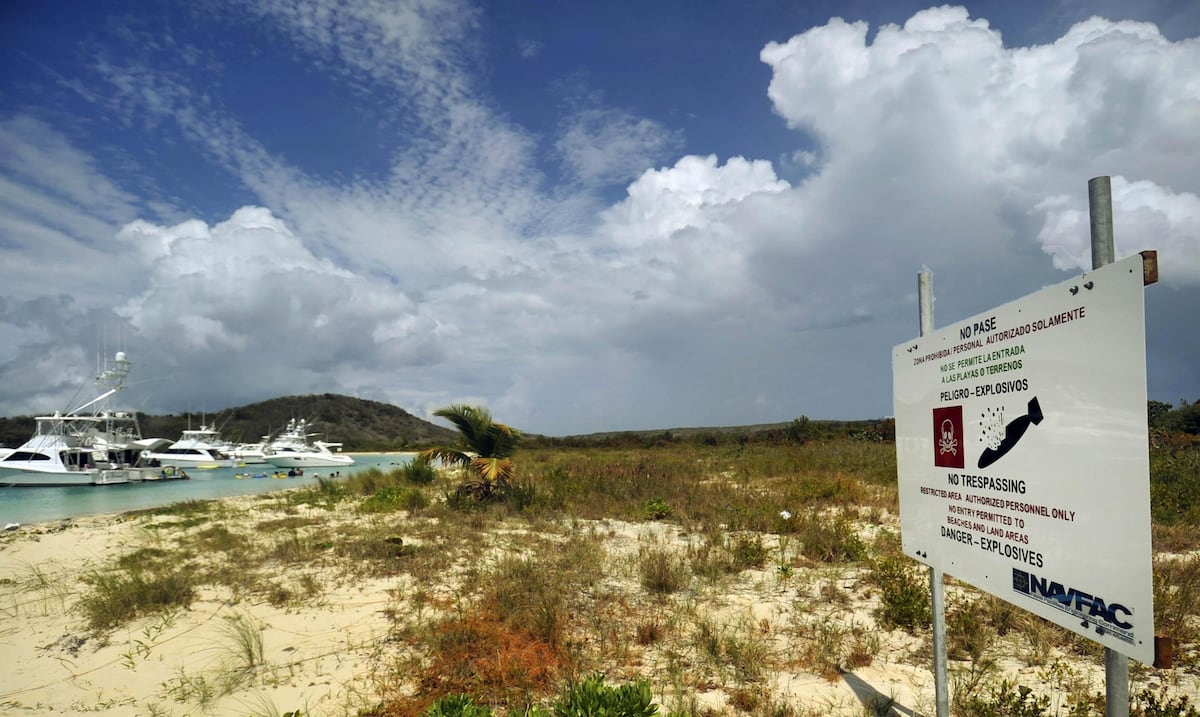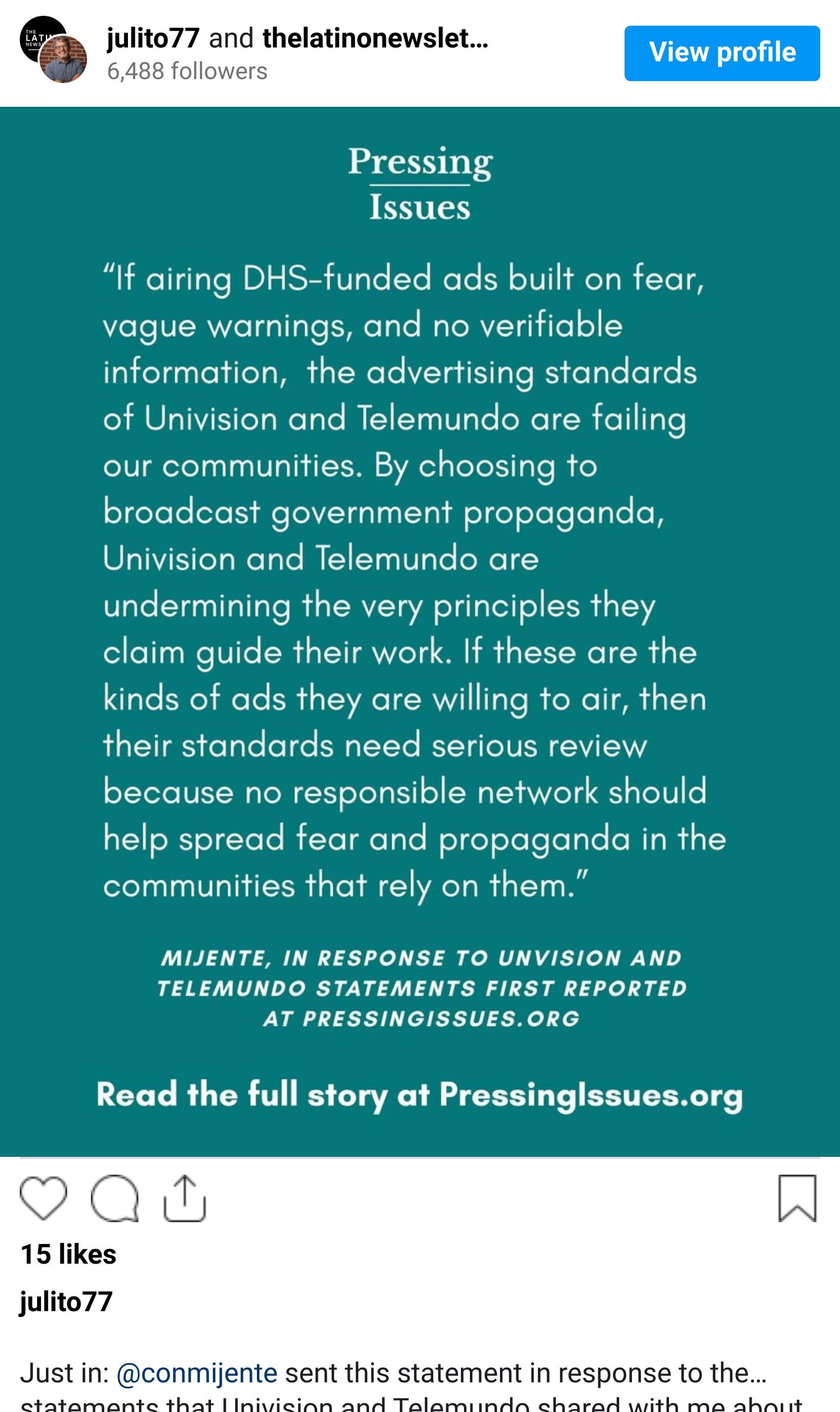
U.S. Marines at Camp Santiago, Puerto Rico, September 18, 2025. (U.S. Marine Corps photo by Lance Cpl. Kyle Baskin/Public Domain)
UPDATE, December 11, 2025: As The Latino Newsletter reported, the Department of Defense issued a solicitation on December 9 for an estimated $32 million one-year contract for food for U.S. military personnel in and visiting Puerto Rico. The solicitation notice confirms that the food will go to ships supporting Operation Southern Spear, such as the largest warship ever constructed, the USS Gerald R. Ford, and the “special operations mothership,” the MV Ocean Trader. A list of customers included in the solicitation includes more than 20 ships, as well as the Fort Buchanan Army National Guard and a “Marine Puerto Rico Exercise.”
Offers for the contract will be due on January 12, 2026, and the inactive date is January 27. The supplier will be required to support all customers within 60 days of the award. Given the due date, the contract will extend until 2027. Like other Defense Logistics Agency contracts, the supplier must have the ability to support surges in demand brought about by military operations, as well as a “full scale military mobilization or a national emergency,” according to one of the procurement records associated with the solicitation.
The Latino Newsletter has compiled documents associated with the solicitation here.
SAN JUAN — As President Donald Trump weighs possible military action against Venezuela and the United States amasses the largest presence in the Caribbean in over 35 years, the Department of Defense (DoD) is planning to issue a multimillion-dollar contract for a year’s worth of food for troops in Puerto Rico, according to a procurement record reviewed by The Latino Newsletter.
The record, a presolicitation notice published on Monday, shows the Defense Logistics Agency (DLA) will make a solicitation in December for a 12-month contract to provide food support for visiting ships, military, and other federal customers located throughout Puerto Rico.
The supplier “will be required to support all authorized DLA customers, visiting or located in Puerto Rico (i.e., visiting U.S. Navy ships, military shore and/or ship facilities, mobile kitchen tents (“MKTs”), ration break points, trailer-transfer points, and military training exercise locations, etc.). As previously stated, these customers include military or other federally funded customers,” the record reads. “Though the solicitation describes existing customers known to the Contracting Officer at the time of the solicitation’s issuance, other customers, including military, Department of Defense (DoD), or non-DoD, may be added as necessary during the life of any resultant contract. The addition of said customers located within the solicitation’s specified region will be at no additional cost to the Government.”
The food supplied by the future contract will go towards feeding the 15,000 troops that have gathered in the Caribbean since August, the largest deployment in the region since the 1989 invasion of Panama. The world’s newest and largest aircraft carrier, the USS Gerald R. Ford, and its nearly 4,600 sailors recently joined the contingent.
“This request to supply food for a year may be a key indication that the Department of War is indeed planning regional operations for the long term,” Luis Rosario Vélez, professor of international policy and diplomacy at Sagrado Corazón University, said.
Troops in Puerto Rico will have a buffet’s worth of choices to pick from over the next year, including frozen meats, fresh fruit, bakery products, juices, and other items. The estimated contract value is $32 million, with a maximum value of $40 million. There will be a one or two-month ramp-up period, followed by “at least, a 10-month performance period,” the record says.
The presolicitation is currently active with a response date of January 9, 2026, and an inactive date of March 9, 2026.
The Long Haul?
Reporting by The Intercept adds further confirmation to the possibility of the military buildup staying in the region long term. They found the DLA was attempting to source tens of thousands of pounds of baked goods for troops in Puerto Rico from November 15 until November 11, 2028. One of the documents found by The Intercept lists several U.S. naval vessels in the Caribbean, including the Iwo Jima, the Fort Lauderdale, and the San Antonio, as recipients of all that food. Several locations where troops are known to be stationed, such as Roosevelt Roads, a long-dormant naval base in Ceiba, are listed in the documents.
The Intercept’s reporting, as well as a recently found procurement record for “Camp Santiago Food Catering,” confirms previous reporting by The Latino Newsletter showing that military deployment was likely to last into early 2026. The 22nd Marine Expeditionary Unit (MEU) issued a request for quotes for catering to Camp Santiago, where it has been training since September, until January 31, 2026, according to the newly found procurement record. The contract will have to feed up to 525 Marines and Navy personnel for breakfast and dinner.
As part of the U.S. government’s “war on drugs,” the Trump administration has conducted airstrikes on alleged drug smuggling vessels that have killed more than 80 people. He has also authorized CIA operations inside Venezuela, and suggested a possible ground invasion into the country, although experts have said there are not enough troops in the region for that.
Defense Secretary Pete Hegseth and General Dan Caine, 22nd chairman of the Joint Chiefs of Staff, visited the Caribbean this week, per the Associated Press.
The Trump administration’s designation of the “Cartel de los Soles” as a foreign terrorist organization went into effect on the same day as the presolicitation notice was published. The U.S. government contends top Venezuelan officials — including President Nicolás Maduro — run the organization. Experts have disputed this, with one calling it a “network of networks” within the Venezuelan military rather than a hierarchical organization under Maduro’s orders.
Rosario Vélez explained that if regime change does occur in Venezuela, the new government would require support from allies until it establishes itself and gains control.
Trump recently signaled that he was open to possible talks with Maduro, who has previously said he was open to speaking to Trump but also vowed to defy any U.S. attempt to overthrow his government.
Military in Puerto Rico
Puerto Rico’s long-dormant military installations have been reactivated as part of this military buildup, sparking concerns about how long their presence could last and reopening old wounds. Much of the public attention has been focused on whether they will use Culebra and Vieques, two small island municipalities to the east of the main island, for training purposes again after protests ousted the Navy. In 1999, bombing practices in Vieques killed a security guard, which led to massive protests until 2003, when the base on the island officially closed.
“From environmentalist to anti-American stances, the political debate surrounding the military presence in Puerto Rico could once again focus on the island's political status in relation to the interests of Washington, D.C. Economically, the increased military personnel and the development of facilities have led to a greater demand for commercial services,” Rosario Vélez said. He believes that it is possible that military bases in both island municipalities could be reactivated.
Democratic Reps. Nydia Velázquez (NY) and Delia Ramírez (IL), as well as Puerto Rico Resident Commissioner Pablo José Hernández, recently asked Hegseth for informative sessions about the Pentagon’s plans for Puerto Rico as part of the military mobilization in the region. The congresswomen are seeking information about possible munitions disposal in Vieques and any national security reasons for the military presence in the Caribbean. Meanwhile, Hernández questioned why there were no public explanations for airspace restrictions in and around the archipelago.
Rosario Vélez explained that Puerto Rico’s colonial status subjects it to the U.S. Congress’ plenary power, so the Navy has no legal obligation to negotiate the use of bases with the archipelago’s government.
“However, every unilateral action has consequences, both positive and negative. On the positive side, we see that the movement of troops and ships is occurring gradually and without alarm. On the negative side, these unilateral actions could be perceived as reinforcing the plenary powers that the United States exercises over the island, thus fueling anti-imperialist and pro-independence rhetoric,” Rosario Vélez said.
The DoD public affairs office referred questions to the DLA, which did not respond to a request for comment by press time.
Carlos Berríos Polanco is a journalist from Puerto Rico who covers climate, conflict, and their intersection. He is also the Deputy Editor of The Latino Newsletter’s San Juan bureau.
A Thanksgiving Message From The Latino Newsletter
As we enter this 2025 holiday season, we would like to express our gratitude for what has been an incredible year for The Latino Newsletter. Our newsroom will be closed on November 27 and 28, and we will return on December 1.
We want to keep The Latino Newsletter accessible without paywalls. To help, you can donate here. Any amount (one-time or monthly) will keep us going.
And now a word from our sponsor
Fuel your business brain. No caffeine needed.
Consider this your wake-up call.
Morning Brew}} is the free daily newsletter that powers you up with business news you’ll actually enjoy reading. It’s already trusted by over 4 million people who like their news with a bit more personality, pizazz — and a few games thrown in. Some even come for the crosswords and quizzes, but leave knowing more about the business world than they expected.
Quick, witty, and delivered first thing in the morning, Morning Brew takes less time to read than brewing your coffee — and gives your business brain the boost it needs to stay sharp and in the know.
What We’re Reading
Mijente Response: After both Univision and Telemundo issued statements in Julio Ricardo Varela’s Pressing Issues story about DHS ads running on the Spanish-language networks, Mijente, the organizers of the “Apaga el Odio” campaign, shared the following statement:
ICE Sent 600 Kids to Federal Shelters: From ProPublica, U.S. Customs and Immigration Enforcement (ICE) has sent more immigrant children to detention in federal shelters this year than the previous four years combined. Their reporting shows that Florida's cooperation has created a pipeline from traffic stops to federal shelters, where children can stay an average of nearly six months.
Julio Ricardo Varela edited and published this edition of The Latino Newsletter. Carlos Berríos Polanco edited the What We’re Reading section.
Consider donating to The Latino Newsletter. Any contribution, no matter how small, helps keep this newsletter free and accessible to all. ¡Gracias mil!







